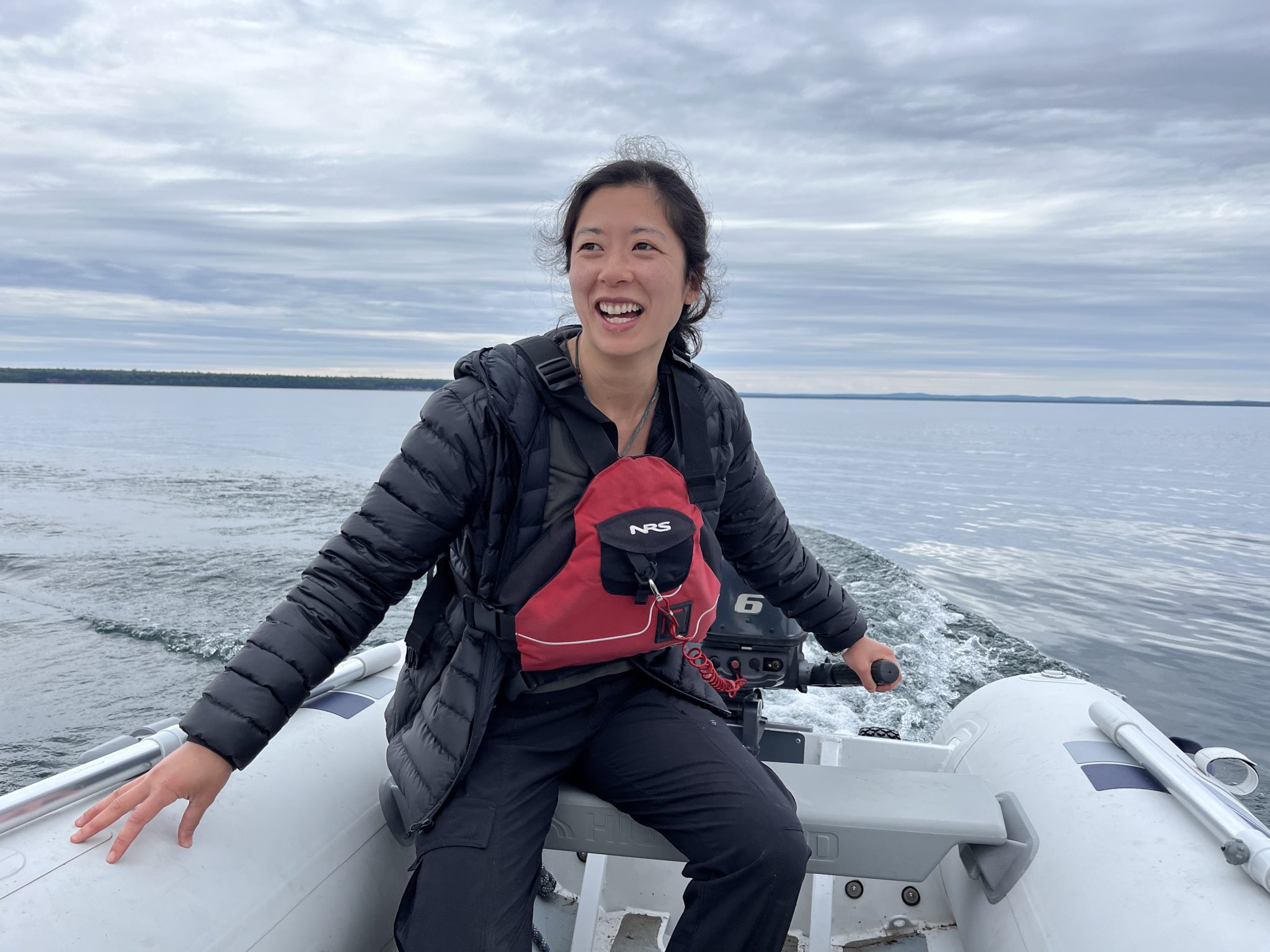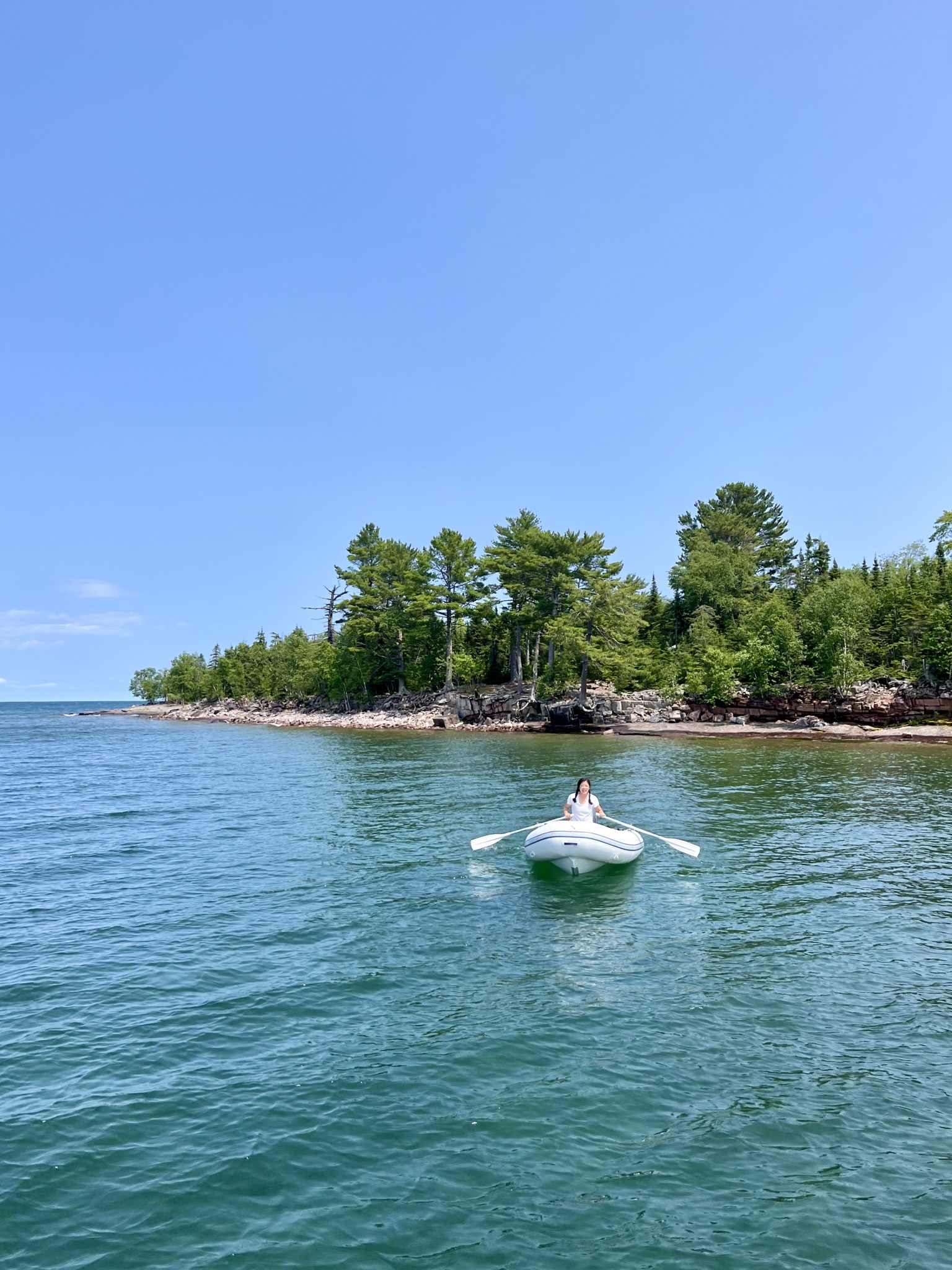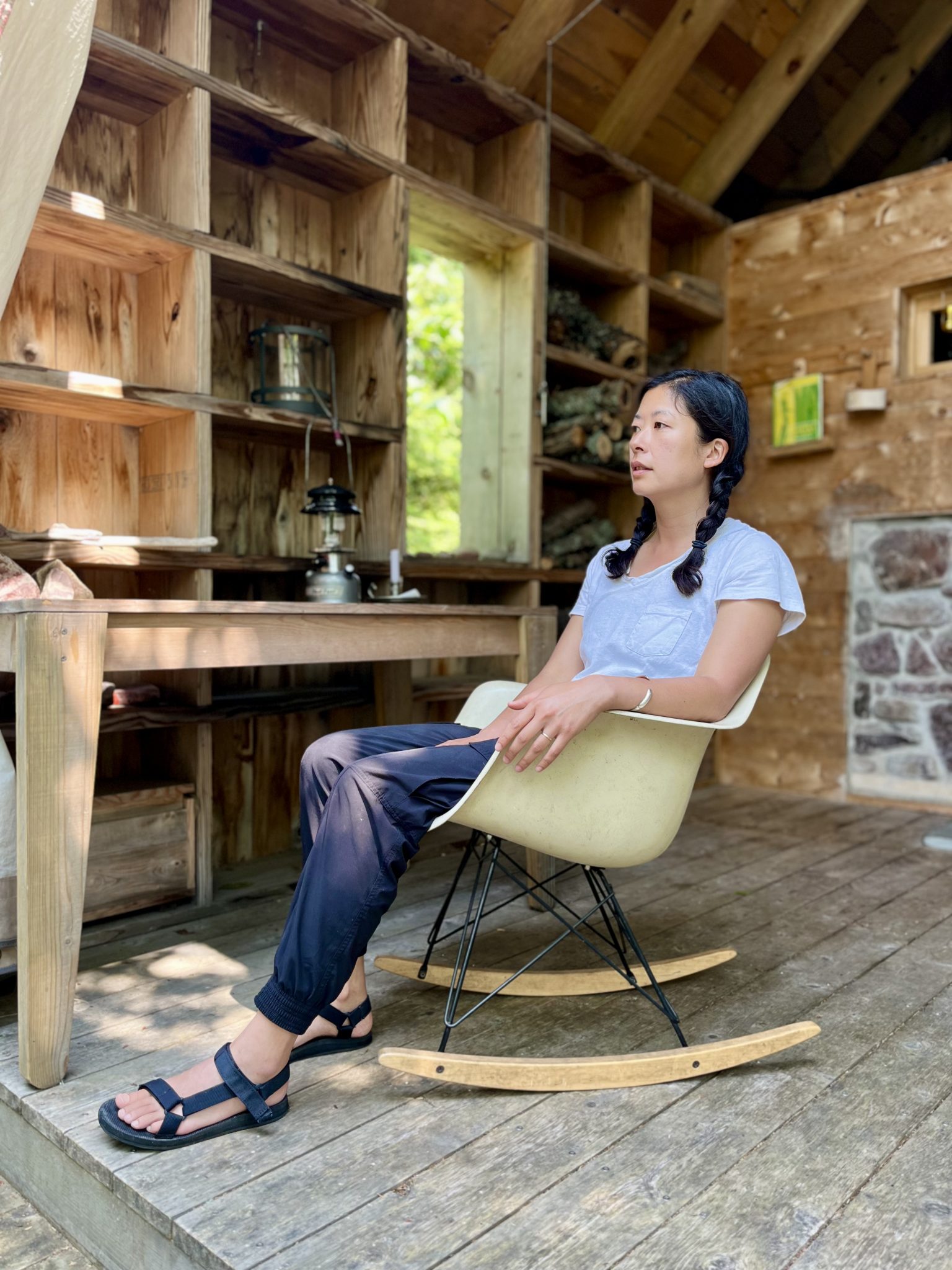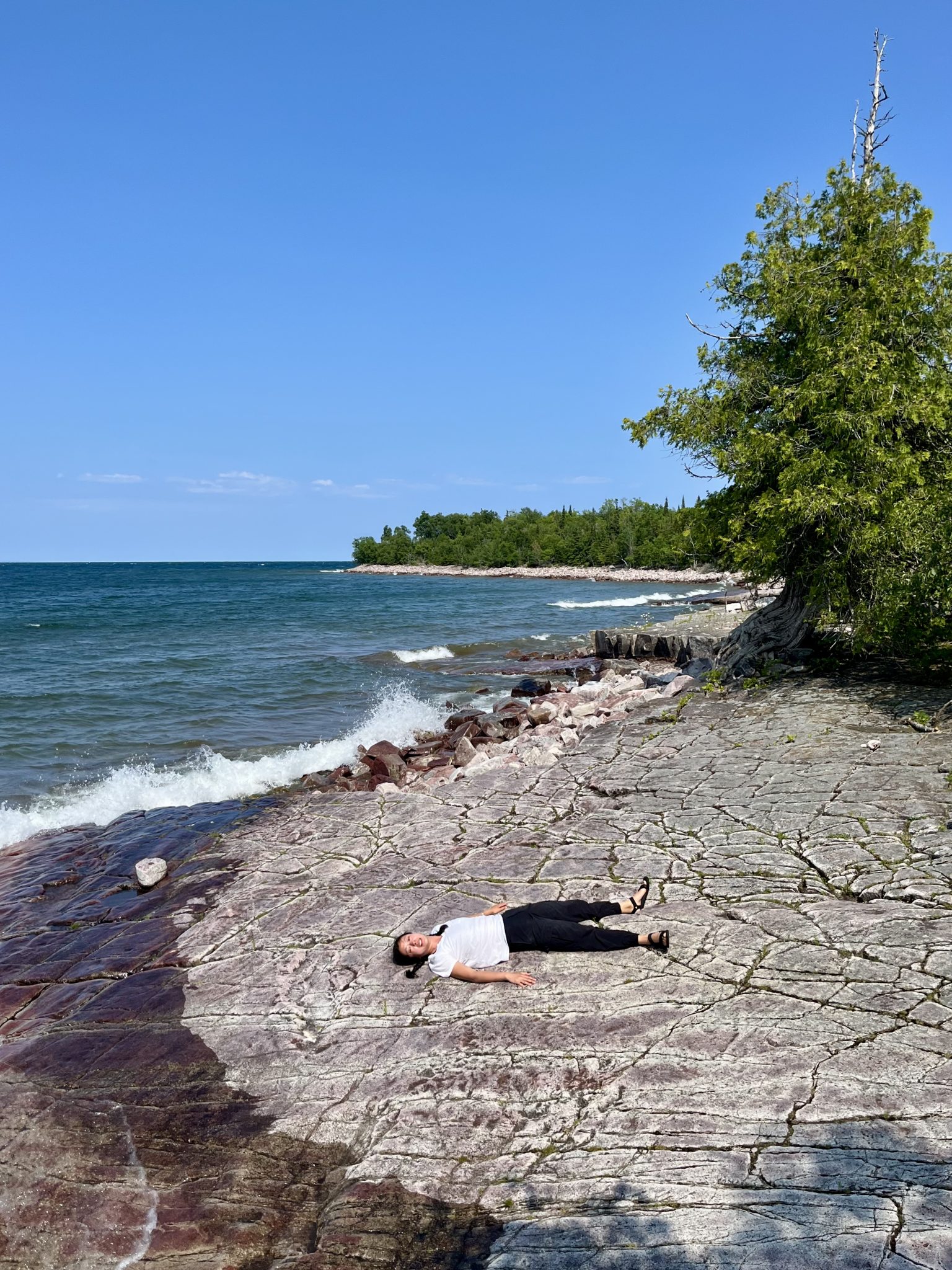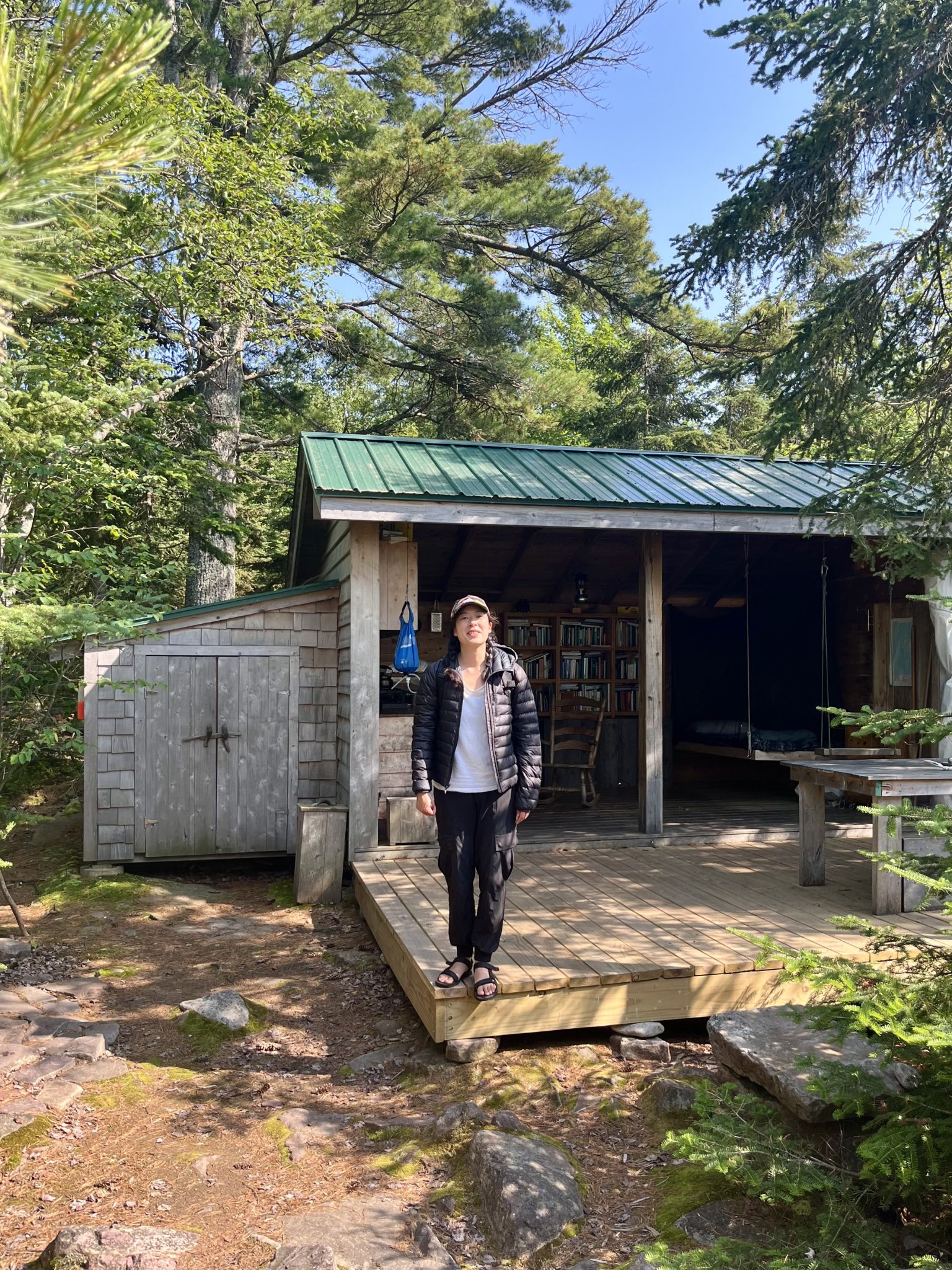I’m a fiction writer interested in the mutability and strangeness of identity, particularly as it intersects with culture over time. My work explores how the self is influenced by society and the environment. I am particularly interested in the embodied experiences of women, typically Asian American bisexual women who exist on the fault lines of different identities. For example, my first novel, Little Rabbit, follows a young queer writer as she embarks on an intense affair with an older male choreographer, exploring the challenges and complications of making art under capitalism. Recently, as my peers and I grapple with parenthood under climate catastrophe, my interest has grown to include our role as human animals, and our obligations and responsibilities to each other and the planet. My new project explores a woman’s experience of pregnancy in an accelerating moment of climate change on remote and increasingly dangerous island off the coast of southern New England.
My project is from the point of view of a pregnant woman who has fled her marriage for a remote island, which increasingly becomes its own active character in the novel. My experience on Rabbit Island will give me the critical sensory details and experience needed for this aspect of the work. The rough outline of my project concerns Tesa, who at age 37 becomes unexpectedly pregnant. Because her husband is morally opposed to having children due to climate change, she avoids telling him and instead moves with her friends to the aforementioned island.
The goal of this work is to depict climate change in a realist mode, rather than a speculative or “cli-fi” lens. I’m highly influenced by Amitav Ghosh’s 2015 book, The Great Derangement, which argues that modern literary novels are built on improbable but believable human actions, instead of the probable but unbelievable transformations of the natural world. This focus on the individual limits the novel's ability to address the broad societal upheavals caused by a warming atmosphere.
